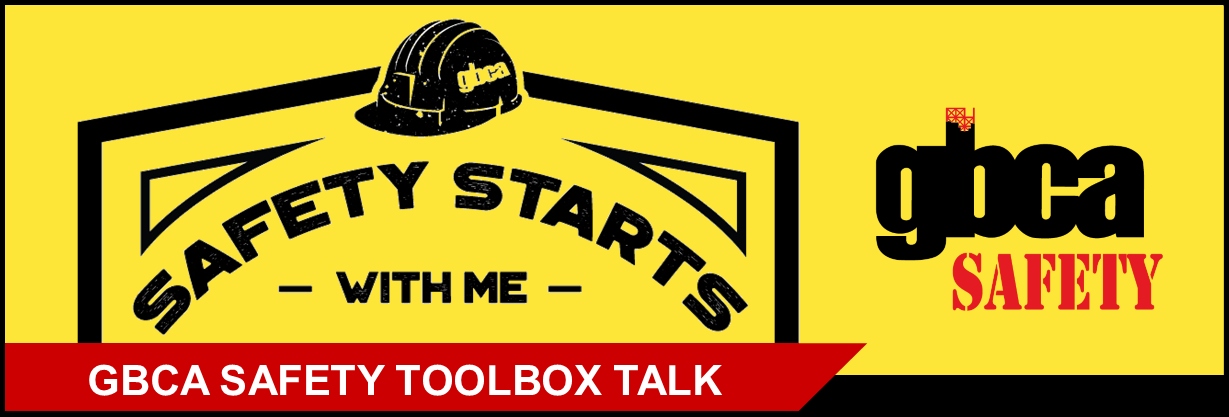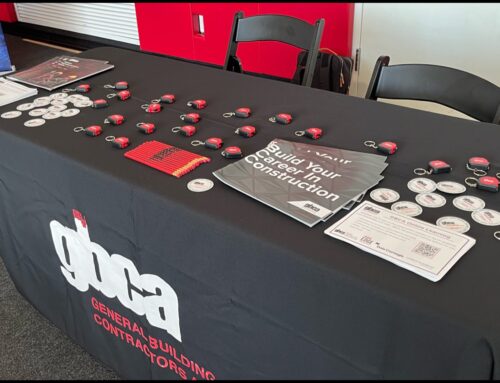This GBCA Safety Toolbox Talk discusses working with electricity, specifically with power cords and plugs. Click below to download the Toolbox Talk as a handout (includes Sign-In Sheet).
Working with Electricity: Power Cords and Plugs
The electric current in any commercial building or home has enough power to cause death. People are injured when they become part of the electrical circuit. The most common causes of electrical injuries come from direct or indirect contact with an electric current through power cords and plugs.
Direct Contact: Touching a live wire:
- When electricity travels through our bodies, it can interfere with the normal electrical signals between the brain and our muscles (e.g., heart may stop beating properly, breathing may stop, or muscles may spasm).
- Muscle contractions can cause a person to fall from a ladder, scaffold or aerial bucket. The fall can cause serious injuries or even death.
Indirect Contact: When electricity arcs through the air to a person who is grounded:
- Arc flashes result in intense heat causing burns, intense light which can cause blindness, or ignition of other materials.
- Arc blasts cause the same conditions as arc flashes, but are more intense and can include a strong pressure wave. These pressure waves can damage machinery, throw a person, collapse a lung or rupture ear drums.
- Thermal burns include flash burns from heat generated by an electric arc and flame burns from materials that catch on fire from heating or ignition by electrical currents. High voltage contact burns can burn internal tissues while leaving only very small injuries on the outside of the skin.
Apply these checklists for basic electrical safety:
Keep Cords and Plugs in Good Condition
- All cords on a jobsite must be rated for construction, marked as JO or SO on the tag or cord itself (no household cords).
- Check power cords and plugs daily. Discard if worn or damaged.
- Have cords that feel more than comfortably warm checked by an electrician.
- Pull the plug, not the cord: Do not disconnect power supply by pulling or jerking the cord from the outlet. Pulling the cord causes wear and may cause a shock.
- Never break off the third prong on a plug.
- Replace broken three prong plugs and make sure the third prong is properly grounded.
Use Power Cords Safely
- Keep power cords away from heat, water and oil; they can damage the insulation, or cause a shock.
- When using power cords in wet locations, always plug into a GFCI device.
- Eliminate octopus connections. Do not plug several power cords into one outlet.
- Never use extension cords as permanent wiring. Use extension cords only to temporarily supply power to an area that does not have a power outlet.
Remember to record the attendees of your toolbox talk!
Access GBCA’s full library of toolbox talks:





